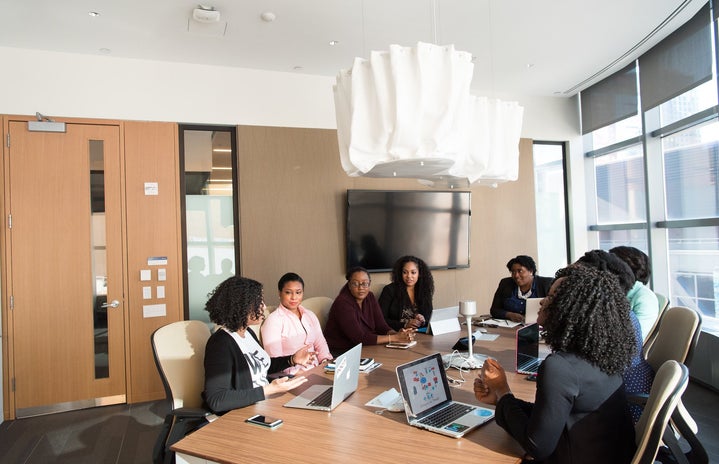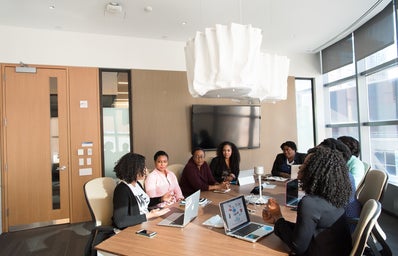In the wake of the nationwide resurgence of the Black Lives Matter movement, several brands and corporations have shown public support for the black community, both through social media posts and donations to social justice nonprofits. However, one CEO is calling on these organizations to go one step further and #PullUporShutUp.
Sharon Chuter, CEO and founder of cosmetics company Uoma Beauty, started the grassroots social media campaign on June 3 with the account @pullupforchange. The Nigerian-born beauty executive wants to bring transparency to representation in corporate America. The challenge calls on brands who have shown support for the Black Lives Matter movement to release the number of black people they have employed in corporate and leadership roles. Chuter gave the brands a 72-hour deadline, asking customers to “vote with [their] wallets” and hold off spending until brands responded to hashtag.
“You can’t say black lives matter publicly when you don’t show us black lives matter within your own homes and your own organizations,” Chuter said in an Instagram post announcing the campaign.
Chuter started the campaign in response to low representation statistics and a lack of consciousness about them. According to the campaign’s account, though black people are 13 percent of the adult American population, 8 percent of people employed in white-collar professions are black and 3.2 percent of executive and senior management level roles are held by black people. In addition, of all Fortune 500 companies, there are only four black CEOs. With these statistics in mind, Chuter thanks brands for their recent public statements and donations, but invites them to address their role in dismantling oppression within their walls.
“Whereas we understand and appreciate the support, be conscious that to piggyback off a trending hashtag when you have been and continue to be a part of the problem is once again appropriating and exploiting the black community,” Chuter said in an Instagram post on the campaign’s account.
The #PullUporShutUp challenge highlights corporate America’s role as a custodian of economic participation, and how they have failed the black community within that role. To the supporters of the campaign, it is little more than a publicity stunt when activism is all external and never internal.
“To at this point still be absolving yourself of the role that you have played and continue to play in the marginalization and oppression of black people shows that a lot of these efforts may just be PR stunts,” Chuter said in an Instagram post.
Since the hashtag’s inception, over 75 companies responded, offering their brand’s representation statistics and pledging to improve. Some of the companies that participated in the campaign are P&G Beauty, Sephora, Ulta Beauty, Unilever, L’Oreal USA, as well as dozens of other beauty brands. Chuter’s own company, Uoma Beauty, shared its executive percentages as well.
Once the 72 hours were up on June 6, Chuter announced the targeted moves that would keep the campaign going. Offering brands who hadn’t responded yet the benefit of the doubt, Chuter explained that moving forward, every two days @pullupforchange would release a list of eight brands for all of the campaign’s followers to collectively target. The first list of eight targeted brands that “profit directly from black culture”, including fashion brands Nike, Adidas, Fashion Nova and Supreme. Chuter also asked Kylie Cosmetics to pull up, and the brand responded with its statistics.
Chuter also addressed that though a majority of the responders thus far had been beauty brands, the challenge was intended for every industry. She theorized that the success of the hashtag within the beauty industry was due to beauty influencers, especially black ones like Jackie Aina, who co-signed the movement to get the attention of various brands. Chuter called on other influencers to do the same, in particular within the fashion industry.
The #PullUporShutUp campaign is helping corporate America face its role as a gatekeeper to economic success for black people. Chuter has made it clear that the hashtag is not meant to start a witch hunt or cancel any particular company, but more so to provide transparency and decrease marginalization by way of staying silent. The hypocrisy in telling followers and consumers to look at themselves and how they’ve contributed to the problem, but remain silent on their own role, is unacceptable.


